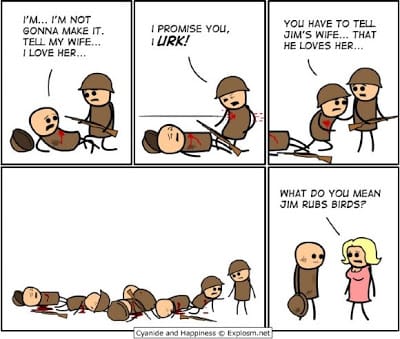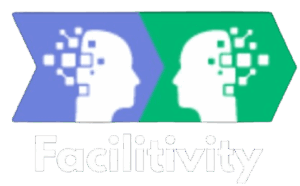In theory, traditional development is a good idea. The work of development is broken up into stages in order to reduce risk and increase efficiency. But in reality a significant proportion of projects are shelved, cancelled, or delivered with low quality. In part, traditional develelopment has problems for the same reasons that it is fun to play the game of telephone.
I remember fondly playing a game called telephone in elementary school. In the game of telephone, a message is whispered from person to person. The fun part is that the last person says what he heard to the whole group and everybody gets a laugh out of how a phrase such as “Send reinforcements, we’re going to advance” gets inadvertently translated into “Send three and fourpence, we’re going to a dance”. This is very similar to what happens in traditional software development projects.
Figure: The Traditional Development Telephone Game
The figure above represents a typical traditional development process and some typical times between handoffs. At each stage, instead of whispering the information along, the participants create and use a series of documents, each of which serves a different purpose. As the information moves from stage to stage it needs to be translated into an appropriate form for each stage of development. The documentation also serves as a record of information that was discovered along the way and the decisions and justification for decisions that were made along the way.
The product manager talks to customers and those conversations are translated into Marketing Requirements Documents (MRDs) which are translated into engineering requirements which are translated into specifications which are translated into designs which are eventually translated into code. The end result is then given to the user who often says something pithy like “that’s not what I wanted.”

At each stage of development there is a risk that the intent from the previous stage is mistranslated. Another way to think of the mistranslation is data corruption. The larger the amount of work that is flowing from stage to stage, and the longer it takes for work to pass from stage to stage, the more likely it is for information to become “corrupted” and the greater the extent of the corruption. Of course, people don’t just blindly translate information without interacting with people from earlier stages, they ask for clarification when they think they need it.

